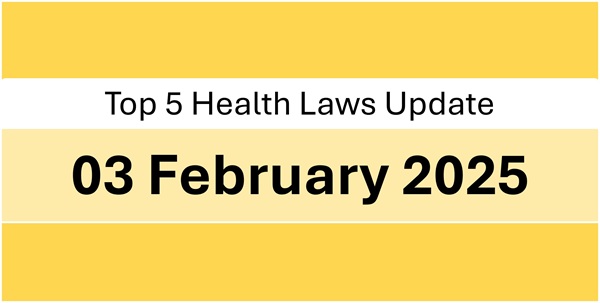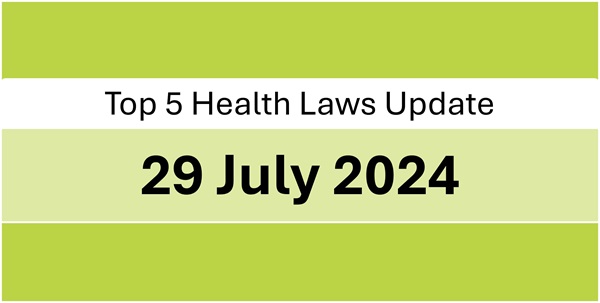Time and again, the pharmaceutical
industry has been accused of indulging in unethical practices concerning the
marketing of medicines around the world. These unethical marketing practices are, in fact,
a major area of concern for the Government as well as patient groups. Amongst
all unethical practices, the one that attracts the highest amount of scrutiny
is the (questionable) interaction between pharmaceutical companies and
healthcare practitioners (HCPs).
India is no exception. The Draft
Pharmaceutical Policy, 2017 published by the Government itself makes a note
that unethical practices employed by pharma companies are an area of major concern
and that Doctors are lured to recommend a particular brand through all expenses
paid trips often disguised as ‘educational conventions’. Unfortunately, the cost
of such trips and other incentives gets added to the overhead cost of marketing
of the medicine and is ultimately passed on to the patients.
There is no law at present that
regulates the promotion and marketing of drugs (including medical devices) by
companies before HCPs. Interactions between pharma companies and HCPs are
regulated, at best, by way of restrictions cast on HCPs through their respective
professional and ethical guidelines. For example, the Indian
Medical Council (Professional Conduct, Etiquette and Ethics) Regulations, 2002
regulate the professional and ethical conduct of doctors practising modern
medicine and prohibits doctors from accepting any kind of freebies (including
travel and accommodation) from pharma and allied healthcare industry. Unfortunately, the principal
legislation that regulates the pharma industry i.e. The Drugs and Cosmetics
Act, 1940 does not say what pharma companies can and cannot say, or give or
cannot give, to HCPs.
It is true that there are consumer
protection legislations in India such as the Consumer Protection Act, 1986 (now
the Consumer Protection Act, 2019) and the Drugs and Magic Remedies
(Objectionable Advertisement) Act, 1954 and Rules, 1955 but these legislations
regulate misleading advertisements, not unethical industry-HCP interaction.
It is, perhaps, not right to say that
the government has turned a blind eye to this problem. In fact, in light of the
increasing number of complaints of unethical practices adopted by pharma
companies, the Department of Pharmaceuticals had introduced the Uniform Code of
Pharmaceutical Marketing Practices (UCPMP) back in 2011 (later revised
in 2014). The intent behind UCPMP code was to guide the pharma industry in its
interaction with HCPs. However, the voluntary nature of UCPMP has relegated its
own status to that of a “non-binding guideline”.
However, not all is lost. There is no
dearth of pharma companies who are proudly ethical in their dealings with HCPs.
In fact, most pharma MNCs have put in place exhaustive internal guidelines and
robust internal systems which guide interactions of their medical
representatives/marketing personnel with HCPs.
Interestingly, HCPs also seem to value such ethical behaviour. It is
obvious that, at the end of the day, a HCP will prescribe medicines from only
those pharma companies whose quality he or she trusts.
It is quite likely that the Indian
government may decide to give legal teeth to UCPMP and make it binding. After
all, the UCPMP is the nearest Indian equivalent to the US Physicians Payment Sunshine
Act that we have. Interestingly, the enforcement of the Sunshine Act by US
Authorities have resulted in hundreds of millions of dollars in fines for some
pharma companies.
There is no doubt that making UCPMP into
a law would certainly help to curb the rampant quid-pro-quo arrangements
that exist today between pharma companies and HCPs. More so, those companies which
currently engage in unethical practices will be forced to re-evaluate their
sales and marketing strategies and become compliant, or else they will have to face
legal consequences.
In the meanwhile, at least those
companies who have achieved leadership positions in India’s pharma industry may
lead by example and assume voluntary responsibility to follow UCPMP in text and
spirit. The pharma industry associations would also do much good if they could
adopt the UCPMP and direct their members to ensure compliance with the
provisions of UCPMP at all costs. Such proactiveness will go a long way in
instilling a sense of confidence amongst the Government and patients groups. And
if that happens, needless to say, the
heavily regulated industry that is pharma industry will have one less
regulation to worry about.
The views are personal.
Anil Upadhyay



